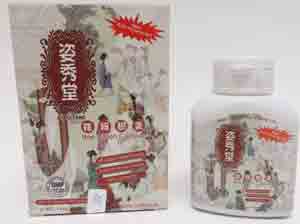 Some bee pollen weight loss supplements contain undeclared or banned drugs that pose serious health risks to consumers, the U.S. Food and Drug Administration (FDA) warns. The agency has received more than 50 reports of adverse health events, including one death.
Some bee pollen weight loss supplements contain undeclared or banned drugs that pose serious health risks to consumers, the U.S. Food and Drug Administration (FDA) warns. The agency has received more than 50 reports of adverse health events, including one death.
The FDA doesn’t evaluate supplements before they enter the market. It’s up to the manufacturer to ensure the product’s safety. Unfortunately, some of them don’t.
At least a dozen weight loss products containing bee pollen have also been found to contain sibutramine, a drug that was banned in 2010 because it posed an increased risk of heart attack and stroke; and phenolphthalein, a drug not approved for sale in the U.S. that acts as a laxative and is a suspected of causing cancer. Those products are: Zi Xiu Tang, Ultimate Formula, Fat Zero, Bella Vi Amp’d Up, Insane Amp’d Up, Slim Trim U, Infinity, Perfect Body Solution, Asset Extreme, Asset Extreme Plus, Asset Bold and Asset Bee Pollen.
Consumers who have purchased any of these products should not use them as they can cause serious illness or death. Those with irregular heartbeats, high blood pressure or bipolar disorder are most at risk. Some people who have taken these supplements have reported heart problems, seizures, suicidal thoughts, anxiety, insomnia and diarrhea. One fatality has been reported.
Despite their dangerous content, the products are often marketed as natural and healthful. “These folks are very savvy in how they market the product. They are going to make you think that it’s not only exotic but also all natural,” says Gary Coody, R.Ph., FDA’s national health fraud coordinator. But “natural” doesn’t automatically mean “safe.”
Bee pollen weight loss products are part of a larger problem with supplements, says attorney Fred Pritzker, whose firm recently won $45 million for clients injured by an over-the-counter drug. His firm, Pritzker Hageman, is representing clients who suffered liver injury after taking another weight loss supplement called OxyElite Pro.
“It’s time for a new law that gives the FDA full regulatory authority over dietary supplements,” said Pritzker. “This would provide some assurance that they are safe, genuine and made in accordance with strict manufacturing standards.”




